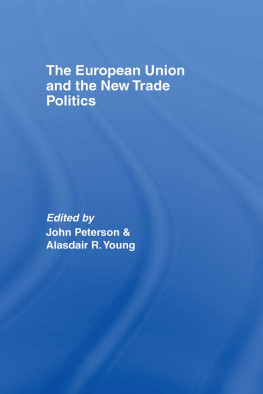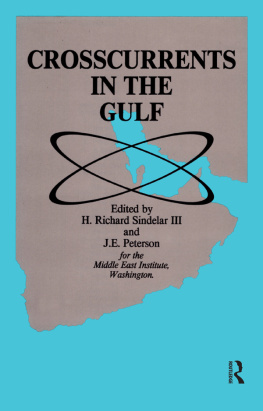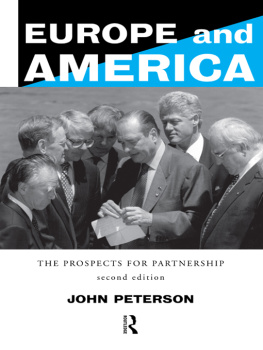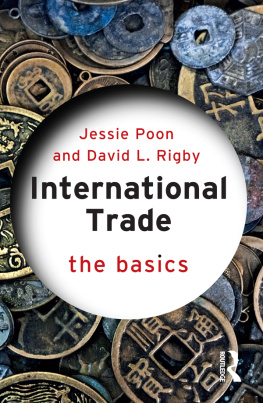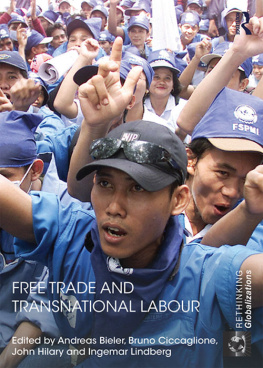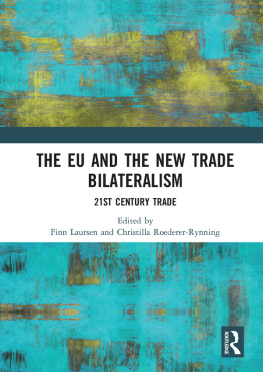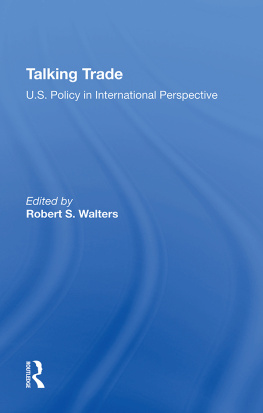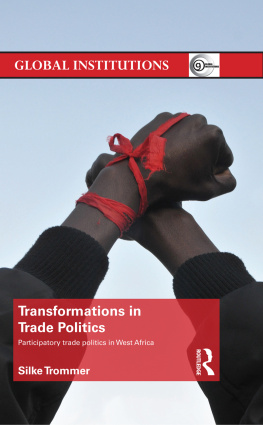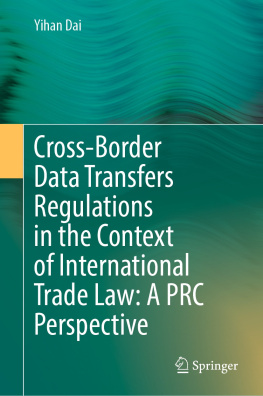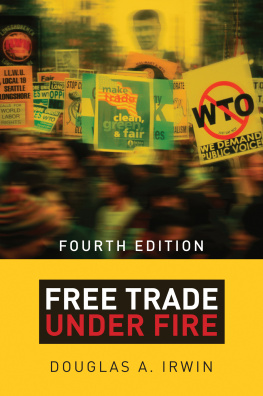The European Union and the New Trade Politics
The politics of international trade have changed dramatically over the past 20 years. Advances in technology have spurred a new kind of trade involving transfers of components and materials across borders but within firms. Trade in services, foreign direct investment and sales by affiliates of foreign-owed companies have grown more rapidly than trade in goods, making national rules and regulations more significant barriers to trade.
The effects of non-trade policies on trade have engaged new actors in trade politics, not least in the European Union (EU). The emergence of a more active bloc of developing countries alongside a vibrant international civil society, including environmental and consumer groups and ministries, have made trade politics increasingly lively, complex, and challenging for the EU. Meanwhile, the World Trade Organization has become not only a primary focus for EU trade policy but also a lightning rod for protest, a powerful legaliser of trade diplomacy, and an arena where it is often difficult, even impossible, to separate private from public interests.
The European Union and the New Trade Politics provides a state of the art analysis of how the EU shapes and is shaped by the new trade politics.
This book was previously published as a special issue of The Journal of European Public Policy.
John Peterson is Professor of International Politics at the University of Edinburgh.
Alasdair R. Young is senior lecturer in international politics at the University of Glasgow.
Journal of European Public Policy Series
Series Editor: Jeremy Richardson is a Professor at Nuffield College, Oxford University
This series seeks to bring together some of the finest edited works on European Public Policy. Reprinting from Special Issues of the Journal of European Public Policy, the focus is on using a wide range of social sciences approaches, both qualitative and quantitative, to gain a comprehensive and definitive understanding of Public Policy in Europe.
Towards a Federal Europe
Edited by Alexander H. Trechsel
The Disparity of European Integration
Edited by Tanja A. Brzel
Cross-National Policy Convergence:
Causes Concepts and Empirical Findings
Edited by Christoph Knill
Civilian or Military Power?
European Foreign Policy in Perspective
Edited by Helene Sjursen
The European Union and the New Trade Politics
Edited by John Peterson and Alasdair R. Young
The European Union and the New Trade Politics
Edited by
John Peterson & Alasdair R. Young
First published 2007 by Routledge
2 Park Square, Milton Park, Abingdon, Oxon OX14 1RN
Simultaneously published in the USA and Canada
by Routledge
270 Madison Avenue, New York, NY 10016
Routledge is an imprint of the Taylor & Francis Group, an informa business
2007 John Peterson & Alasdair R. Young
Typeset in Agaramond and Franklin Gothic by Techset Composition, Salisbury, UK
Printed and bound in Great Britain by MPG Books Ltd, Bodmin, Cornwall
All rights reserved. No part of this book may be reprinted or reproduced or utilised in any form or by any electronic, mechanical, or other means, now known or hereafter invented, including photocopying and recording, or in any information storage or retrieval system, without permission in writing from the publishers.
British Library Cataloguing in Publication Data
A catalogue record for this book is available from the British Library
Library of Congress Cataloging in Publication Data
A catalog record for this book has been requested
ISBN: 0415394910 (hbk)
ISBN: 9780415394918 (hbk)
Contents
| Alasdair R. Young and John Peterson |
| Peter Holmes |
| Gregory Shaffer |
| Dirk De Bivre |
| Chad Damro |
| Steven McGuire |
| Sophie Meunier and Kalypso Nicoladis |
| Matthew Baldwin |
| Erik Jones |
Alasdair R. Young and John Peterson
Over the past twenty years, and particularly during the last ten, the nature of international trade has changed in terms of both content and process. The multilateral trade agenda has broadened, particularly to embrace behind-the-border policies that affect trade, and has begun to address regulatory differences that obstruct trade. Meanwhile, the international trading system has become more complex and legalistic. These developments have been prompted partly by the changing nature of international economic exchange and new concerns on the part of business interests that have traditionally been engaged in trade politics. The intrusion of the multilateral trade agenda behind borders and its increasing legalization have galvanized a range of domestic actors new to trade politics, including parliaments, non-trade ministries, and a diverse array of non-governmental organizations (NGOs). At the same time, developing country governments have become more actively engaged in trade diplomacy in response to both the more intrusive nature of the multilateral trading system and their greater participation in international trade. They have shown themselves capable of collective action to the point that a multipolar balance of power has emerged in international trade diplomacy. More generally, while trade policy has become more technical, the significance of those decisions for domestic rules has meant that it has become less technocratic. All of this adds up to a new trade polities.
The rise of the new trade politics has not been unique to the European Union (EU). Yet, the EUs response to them appears to be distinctive. Since the Uruguay Round the EU has been the most aggressive and persistent advocate of a broader international trade agenda and the strongest proponent for developing common multilateral disciplines on the making of domestic rules what might be termed a deep trade agenda in areas including competition policy, environmental standards, labour rights and investment rules. Arguably, the EU has responded more quickly and energetically than any other major trading power to the new domestic politics of international trade, if not to the new international balance of power.
This volume brings together European and American experts on EU trade policy to examine how the Union is contributing and responding to the new trade politics. This contribution provides our own overview of the changing nature of trade and trade politics and the EUs distinctive response to them. We argue that the EUs distinctive trade policy is only partially a response to the new trade politics and even then not in the way implicitly assumed in the literature. More precisely, the EUs own experience of market integration underpins its external trade policy. Where the new trade politics have had a tangible impact on European economic diplomacy it has not been through the direct engagement of new interest groups consumer, environmental and development NGOs in lobbying trade officials, but rather through a more general shift at the highest political level in views on the purpose and priorities of trade policy.

